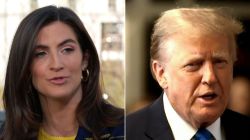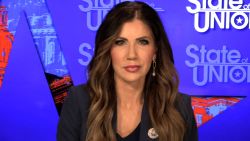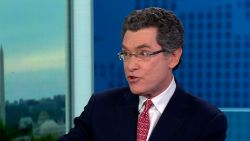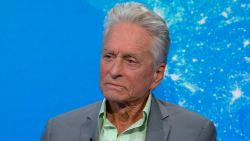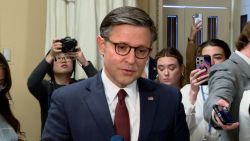Former Trump White House Chief of Staff Mark Meadows did not appear for a deposition on Friday in front of the House select committee investigating January 6, sources familiar with the investigation tell CNN, setting up a potential showdown that could lead to the panel beginning a criminal referral process against him.
Committee staffers had been prepared to go forward with the interview and waited in a room on Capitol Hill with a stenographer, but started to file out of the room nine minutes after the deadline passed.
Committee Chairman Bennie Thompson, a Mississippi Democrat, and Vice Chairwoman Liz Cheney, a Wyoming Republican, said in a statement on Friday that Meadows’ actions force the panel to consider criminal contempt of Congress, but they stopped short of saying that is the path they will officially pursue.
“Mr. Meadows’s actions today – choosing to defy the law – will force the Select Committee to consider pursuing contempt or other proceedings to enforce the subpoena. If his defiance persists and that process moves ahead, the record will reveal the wide range of matters the Select Committee wished to discuss with Mr. Meadows until his decision to hide behind the former President’s spurious claims of privilege,” the pair said in a statement.
“It’s unfortunate that Mr. Meadows has chosen to join a very small group of witnesses who believe they are above the law and are defying a Select Committee subpoena outright.”
Meadows’ attorney did not respond to a request for comment after the scheduled deposition.
Ahead of the scheduled deposition Friday morning, Meadows’ attorney, George J. Terwilliger III, issued a statement saying his client would not cooperate with the committee until courts ruled on former President Donald Trump’s claims of executive privilege, noting “a sharp legal dispute with the committee.”
“The issues concern whether Mr. Meadows can be compelled to testify and whether, even if he could, that he could be forced to answer questions that involve privileged communications,” Terwilliger said. “Legal disputes are appropriately resolved by courts. It would be irresponsible for Mr. Meadows to prematurely resolve that dispute by voluntarily waiving privileges that are at the heart of those legal issues.”
Terwilliger added, “No matter how important the subject matter of the committee’s work, decades of litigation over Executive Privilege shows how critically important it is for a president to have access to advice and counsel without fear that political opponents in Congress will later be able to pull away the shield of confidentiality that protects candor in those communications.”
In their statement, Thompson and Cheney rejected the argument that Meadows can claim executive privilege.
“It’s important to note that there’s nothing extraordinary about the Select Committee seeking the cooperation of a former senior administration official,” they said. “Throughout U.S. history, the White House has provided Congress with testimony and information when it has been in the public interest. There couldn’t be a more compelling public interest than getting answers about an attack on our democracy.”
Among the questions the panel wants answered from Meadows is whether he was using a private cell phone to communicate on January 6 and where his text messages from that day are.
By officially setting a deadline that Meadows did not meet, the committee took an official step toward possibly referring Meadows to the Department of Justice for contempt of Congress.
Thompson scheduled the Friday deposition late Thursday evening in an effort to force Meadows’ compliance.
“The Select Committee will view Mr. Meadows’s failure to appear at the deposition, and to produce responsive documents or a privilege log indicating the specific basis for withholding any documents you believe are protected by privilege, as willful non-compliance,” Thompson wrote on Thursday ahead of the scheduled deposition.
Thompson continued, “Such willful noncompliance with the subpoena would force the Select Committee to consider invoking the contempt of Congress procedures … which could result in a referral from the House of Representatives to the Department of Justice for criminal charges – as well as the possibility of having a civil action to enforce the subpoena brought against Mr. Meadows in his personal capacity.”
Earlier Thursday, White House Deputy Counsel Jonathan Su wrote to Meadows’ attorney, informing him of Biden’s decision and once again citing “the unique and extraordinary circumstances where Congress is investigating an effort to obstruct the lawful transfer of power under our Constitution.”
Su noted to Terwilliger that Biden has already determined that executive privilege does not apply to particular subjects within the committee’s purview, including “events within the White House on or about January 6, 2021; attempts to use the Department of Justice to advance a false narrative that the 2020 election was tainted by widespread fraud; and other efforts to alter election results or obstruct the transfer of power.”
The Washington Post first reported Su’s letter.
Meadows was subpoenaed in September, and since then the committee has indicated he’s been “engaging” in negotiations over the terms of his turning over documents and appearing for a deposition.
But weeks after the committee granted Meadows a “short” but indefinite postponement of the initial subpoena deadline, members are growing increasingly frustrated and have been contemplating when and how to ramp up the pressure.
The committee is setting up to follow a similar path it pursued with Trump ally Steve Bannon.
The Justice Department announced Friday that a federal grand jury had returned an indictment against Bannon for contempt of Congress after he defied his subpoena from the committee.
“While we’re determined to get all the information we’re seeking, Mr. Meadows, Mr. Bannon, and others who go down this path won’t prevail in stopping the Select Committee’s effort getting answers for the American people about January 6th, making legislative recommendations to help protect our democracy, and helping ensure nothing like that day ever happens again,” Thompson and Cheney said.
Asked if the Bannon development affects the committee’s thought process on how to move forward with Meadows, Rep. Jamie Raskin, who serves on the panel, said members on the committee view each case separately, but that each individual subpoenaed is held to the same standard of the rule of law.
“I’m certain there will be little patience for anyone who is just blowing off congressional subpoenas,” the Maryland Democrat told CNN, acknowledging that members are not in town this week and will have to wait until next week to officially meet. “We have been moving promptly to respond to defiance to any House subpoenas.”
Rep. Adam Kinzinger of Illinois, one of two Republicans on the House panel, told CNN that he hopes the indictment against Bannon “sends a chilling message” to anyone considering not cooperating with the committee.
“This is certainly a good thing, and I hope it sends a chilling message to anybody else that was going to follow through like this,” he said.
The lack of cooperation from Meadows and the federal indictment of Bannon comes after the committee has said they have interviewed 150 individuals who are “engaging and cooperating” with its investigation. The committee has issued 35 subpoenas to date, including to former White House officials, Trump campaign officials and organizers of the rallies and events leading up to the January 6 attack.
On Tuesday, the committee also subpoenaed two former White House officials who worked closely with Meadows to learn more about his efforts to communicate with others relevant to the probe – including election officials in Georgia, organizers of January 6 events and high-level officials at the Department of Justice.
This story has been updated with additional developments Friday.
CNN’s Shawna Mizelle contributed to this report.














